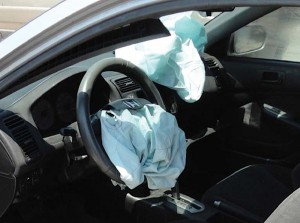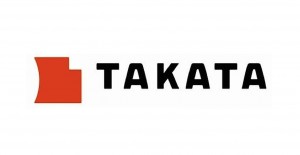(This story has been updated to reflect Honda’s decision to stop using Takata airbags.)
Even as the supplier faces the prospect of new recalls, Takata could be in for a fine of as much as $200 million if it doesn’t follow up on demands laid out in a consent decree with the National Highway Traffic Safety Administration.
Takata, whose faulty airbag inflators have been blamed for at least eight deaths and 98 injuries, will face an immediate $70 million in penalties. It will then be watched by an independent monitor and, if it doesn’t live up to several conditions – including a speed-up in its recall process – it could face another $130 million in deferred penalties.
The cost of the settlement could be dwarfed by legal fees and penalties from an ongoing Justice Department criminal investigation. Meanwhile, Honda, Takata’s largest customer, said Tuesday it is severing ties with the supplier.
“On a global basis, no new Honda and Acura models currently under development will be equipped with a front driver or passenger Takata air bag inflator,” Honda announced. Toyota recently sought out an alternative supplier for inflators it will use to repair faulty Takata airbags.
Even if Takata complies with the government’s consent decree, this would match the largest penalty ever handed down by NHTSA due to safety irregularities. Earlier this year, Fiat Chrysler Automobiles was hit with a $70 million penalty for failures linked to a number of separate recalls.
“We shouldn’t even be here. DOT should not have to place itself in the middle of a massive safety recall,” U.S. Transportation Secretary Anthony Foxx said during a Tuesday news conference. “American drivers should not have to worry that a device designed to save their life might actually take it.”
As part of its settlement, Takata acknowledged its failure to act in a timely manner, stating, “it was aware of a defect but failed to issue a timely recall,” NHTSA announced.
(VW reveals “irregularities” in 800,000 more vehicles. Click Here for the latest.)
The issue revolves around airbag inflators used by a dozen auto manufacturers, including Toyota, Honda, General Motors and BMW. For reasons that have yet to be determined, those devices can inflate over-aggressively, sending shrapnel flying into the passenger compartment. Along with the eight known deaths, injuries have ranged from cuts and bruises to a lost eye.
The issue was initially linked to vehicles used in high-humidity climates, such as Southern Florida, where inflator failures were most prevalent. But earlier this year, NHTSA decided on a nationwide recall which Takata initially resisted. It ultimately reversed its stand after a number of its customers, including Honda, decided to order recalls on their own.
At first, NHTSA’s order covered 33.8 million inflators, a figure more recently cut to 24 million of the devices used in about 20 million separate vehicles.
(GM gets independent monitor to assure compliance on safety standards. Click Here for the latest.)
But Takata’s problems may yet worsen. Those recalls cover frontal airbags used in older vehicles. But federal investigators are now looking into reports that side impact airbags in newer vehicles are also malfunctioning.
One possible explanation is the volatile chemical used by Takata to power its inflators. As part of the consent decree, Takata will abandon ammonium nitrate and replace it with what critics hope will be a more stable material.
The supplier also will have to find ways to produce more replacement inflators. Dealers and consumers have been complaining they cannot complete repairs because of a shortage of those parts. Toyota recently found a secondary source for inflators in its own bid to improve its recall response rate.
The consent decree suggests Takata has decided to end what was a confrontational approach to the airbag issue. It not only resisted NHTSA’s demand to recall more vehicles but got into several contentious appearances on Capitol Hill.
Not everyone feels the consent decree came down hard enough on Takata.
“Meager fines do nothing more than change the costs of doing business and provide no meaningful deterrence for continuing reprehensible and irresponsible behavior that costs countless preventable injuries and lives,” said U.S. Sen. Richard Blumenthal, D-Connecticut, and U.S. Sen. Edward Markey, D-Massachusetts.
“Today’s action provides further evidence that the cap on civil penalties levied by NHTSA must be eliminated by Congress,” they said in a statement, “and we must also reform the criminal penalties associated with concealing life-saving information about defects from the public.”
Despite signing the consent decree, Takata’s troubles are far from over. Not only must it live up to NHTSA’s demands but it also faces the expanded airbag inquiry. And there are dozens of lawsuits filed by consumers working their way through the courts. Takata officials also could wind up in court if the U.S. Justice Department moves forward with an ongoing criminal investigation.
(GM recalls 1.4 million vehicles due to fire hazard. Click Here to find out more.)



Takata is likely to be terminated the way things are going.